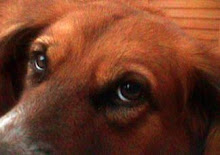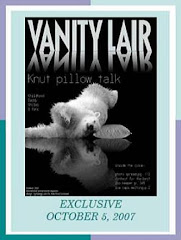

 These are enchanting photos from Zoo Moscow found within an article of 22 December. Not only UlliJ thinks that the article reads as if at Moscow Zoo, two females have recently given birth to 3 cubs...It is also about the low temperatures this winter in November which kept the female bears longer than usual "wakeful" which means not prepared to give birth soon if I deduce hopefully correctly...A Russian interpretor would be nice to have at hands now...
These are enchanting photos from Zoo Moscow found within an article of 22 December. Not only UlliJ thinks that the article reads as if at Moscow Zoo, two females have recently given birth to 3 cubs...It is also about the low temperatures this winter in November which kept the female bears longer than usual "wakeful" which means not prepared to give birth soon if I deduce hopefully correctly...A Russian interpretor would be nice to have at hands now...Source: Life/russ.
Please check the English google translation here (very bad but would you deduce from it differently?)














































4 Kommentare:
UlliJ konnte ähnlich wie die Bären im Moskauer Zoo nicht richtig schlafen und hat in der Zwischenzeit weitere Links gefunden, die belegen, dass es letzte Woche vermutlich zu 2x Nachwuchs bei wahrscheinlich 2 Müttern gegeben hat. Noch lassen sich keine weiteren Details über die installierte Kamera feststellen.
Im Moskauer Zoo leben 2 Eisbärinnen und 2 Eisbärenmänner...
Da die verschiedenen Meldungen alle 'hnlich sind, hier ein Link mit google Übersetzung:
http://translate.google.com/translate?hl=en&sl=ru&tl=en&u=http%3A%2F%2Fwww.rian.ru%2Fanimals%2F20091223%2F200965404.html
UlliJ found more links in the meantime confirming the birh of probably 2 cubs, probably born by 2 mothers. Too early to say more.
In Moscow zoo there are 2 female and 2 male polar pears living currently.
Here one link found by UlliJ with google translation/engl.
http://translate.google.com/translate?hl=en&sl=ru&tl=en&u=http%3A%2F%2Fwww.rian.ru%2Fanimals%2F20091223%2F200965404.html
Thanks you, Ulli, for the digging!
Patricia has done a much better translation than google, posted in Knutitis Forum. I take the liberty to copy it here...
"Polar bears, residing in Moscow Zoo, have not went into hibernation and gave recently birth to cubs.
Three cubs were born when the mothers, after hibernation, brought them out of the den.
Prior to this happy event, the female polar bears were suffering from insomnia. The abnormal warm weather of late November and early December, which formed a record, did not motivate the female bears to lie down to sleep. Actually, polar bears are awake all Winter, except for the pregnant females who sleep. However, this year, due to the fact that the temperature for such a long time did not fall below 0°C, an the snowfall resulted in the fact that the females polar bears stayed awake.
For these “sleeping beauties”, the Zoo provides dens in which the bears themselves are laying on hay (???). But this year, they were not in a hurry to fall asleep, although it was rather a situation of half-asleep.
As soon as the land was covered by the long-awaited first snow, the female polar bears fell asleep in expectation of their offspring. During this hibernation, the staff is not worried about the bears in their dark homes. It was only at the moment that when a hidden camera that was installed in the dens, captured the newborns, that the zoo was relieved and saw that the mothers, even without opening their eyes, were in labor.
According to the spokeswoman of the Moscow Zoo, the females gave birth in a dream. In general, bears are very prolific, like cats and the number of offspring needs to be controlled because the Zoo is responsible for each child.
One of the females gave birth to a twin and the other to a single cub. The cubs have enough breast milk."
"Well, if all this is true, then let us cross our fingers that they all three make it."
Yes, Patricia,let's cross the fingers...As this article is older than the others found by Ulli this morning, it is probable that there are maybe only 2 cubs...WWhatever...I hope they are doing fine as this year lots of polar bear ladies haven't been lucky...
Thank you so much for your translation and your Christmas greetings in yesterday's threat...
Hope you can enjoy some peaceful days with friends and family!
Birgit
Working from everyone else's work, here's a translation in colloquial English. I am uncomfortable with the term 'hibernation' as in English polar bears are said not to hibernate. Sometimes the word 'torpor' is used to describe this slowed-down period. And any knowledge I have of life in the den suggests that, while they do sleep a lot, they also have periods when they actively care for the cubs. Anyhow ...
WHILE ASLEEP A MOSCOW ZOO BEAR HAS GIVEN BIRTH
In two dens, polar bears have successfully given birth.
Moscow Zoo polar bears, not asleep although said to be in hibernation, have recently produced offspring.
The three newborn cubs will only see the light of day when their mothers bring them out of the den at the end of hibernation.
Up to the time of the births, the females had not entered their dens. The record-breaking warm weather of late November and early December discouraged the females from withdrawing into their dens. Actually polar bears remain active all winter, except for pregnant females, who do sleep. This year, however, since temperatures remained above freezing for so long and due to [lack of?] snowfall, the future mothers remained active longer.
For these 'sleeping beauties' the zoo provides dens furnished with straw bedding, commented Natalia Istratova, LifeNews spokeswoman for the Moscow Zoo. But this year, they were in no hurry to bed down, even though they do slow down and are sleepier. We gradually reduce the [light?] to facilitate the urge to sleep.
At the first snowfall, the females entered their dens and began to sleep as they awaited birth. During hibernation, the staff does not disturb the bears in their darkened homes. Only when the hidden cameras installed in the dens captured images of the newborn did the zookeepers sigh with relief. The mothers, even without opening their eyes, had given birth.
Female polar bears give birth while asleep, commented LifeNews zoo spokeswoman Elena Mendoza. Similar to cats, these bears are generally very prolific, said Elena with a smile. We have to control the number of offspring because the zoo is responsible for each cub.
One female gave birth to twins, the other to a single cub.
The cubs have enough breast milk; no solid food is required. [While they are still tiny, they remain in the dens with their mothers. (?)] Zookeepers and zoo visitors will be able to see the cubs when they are older, although still quite young, when their mothers choose to bring them out of the den for the first time.
There are a total of 16 bears at the Moscow Zoo. Three female polar bears are in dens, along with four Himalayan brown bears. Male polar bears, spectacled bears, and sloth bears don't hibernate.
Dear Diane,
Thank you you so much for your translation and your additionally remarks about hibernation. Together with te translation of Patricia we can get now the picture of the situation in Moscow.
Great work!
Beary hugs to the translators.
Birgit
Kommentar veröffentlichen